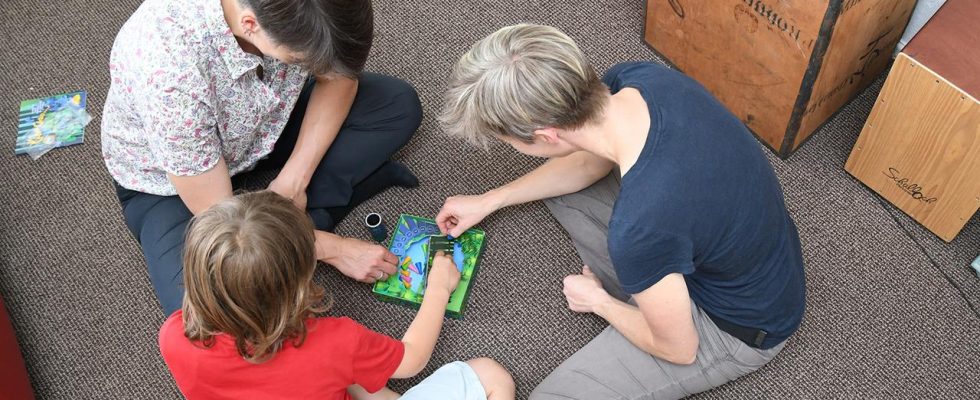The Federal Ministry of Justice is embarking on a reform of family law step by step. Following suggestions on maintenance law in the summer, key points on the question of legal parenthood now follow. An overview.
German parentage law should become more contemporary – the part of the Civil Code that determines who the legal parents of a child are. Traditionally, the mother is the woman who gave birth to the child. Her father is the man who is married to her.
“For most people, being in love, getting engaged, getting married, starting a family and staying together until the end of your life is still part of it,” says Federal Justice Minister Marco Buschmann. “But there are also other paths in life.” Couples who raise children without a marriage certificate, homosexual couples who want to have children. Children conceived through sperm donation.
“The law must provide contemporary answers for all of these paths to happiness and for all of these family law situations,” said the FDP politician. The Federal Ministry of Justice is now presenting a key points paper with a number of individual suggestions.
Simplification for lesbian couples
According to this, the following could apply in the future: If a woman has a child in a lesbian marriage, her wife should automatically also be the mother. If the couple is not married, the female partner should be able to simply acknowledge the child – just as a male partner could do. Until now, women in a lesbian relationship have had to adopt the child, which is legally more complicated.
There will be no corresponding regulation for gay couples because no child can be born into gay partnerships and the principles of current parentage law should remain: The woman who gives birth to the child is always the mother of the child. The two-parent principle also applies: a child should not have more than two legal parents.
“Proven principles”
The Federal Ministry of Justice emphasizes that they want to stick to these “tried and tested principles”. Multiple. “Nobody has to be afraid that a revolution will take place here. Rather, we are developing family law so that it does better and more practical justice to the changed social reality,” said Buschmann.
In the future, children will not be able to have more than two legal parents – not even in rainbow or patchwork families. However, parents should be able to grant custody rights or access rights to up to two other adults. This can be, for example, the grandparents or partners of the legal parents and is intended to simplify everyday situations – for example when the grandma takes the child to the doctor and minor treatment is necessary.
Parenting agreements
In addition, so-called parenthood agreements are to be introduced – agreements in which it can be determined in advance who will become a parent alongside the woman who will give birth to the child.
Such agreements can be relevant, for example, in cases of private sperm donation if it is clear before the child is conceived that the sperm donor does not want to take responsibility for the child and wants to hand it over directly to the mother’s partner.
In such cases, “clear circumstances” should be created at an early stage through a parenthood agreement – because of the far-reaching consequences, publicly certified by a notary or a clerk from the youth or registry office.
Childhood law
A reform of child custody law is also planned. This involves, for example, a legal regulation of the so-called alternating model, i.e. when children are cared for alternately by both parents after a separation.
Further aspects: Those affected should be better protected from domestic violence. And Couples who are not married should be able to adopt a child together. This is not possible yet.
How it goes on
So far, all of these are just suggestions from the Federal Ministry of Justice, which now wants to collect feedback and, on this basis, draw up a draft law in the first half of 2024. It also needs to be clarified how the reform of authorities and courts can be implemented with reasonable effort.
What’s still missing
The proposals are part of the reform of family law that the traffic light had set out in the coalition agreement – from the Federal Justice Minister’s point of view, overall “the biggest family law reform in recent decades”.
This also included the introduction of a so-called community of responsibility. The idea behind it: People should be able to take responsibility for each other beyond a romantic relationship or marriage. Proposals on this are still pending.
Buschmann had already presented key points for changes to maintenance law in the summer. The aim is to take greater account of how much care the paying parent takes on when determining the amount of maintenance obligation after a separation. According to current law, it makes little financial difference whether you look after the child one or three days a week.
Single parent associations initially criticized the project heavily. They fear that mothers, who still primarily care for the children, will be financially disadvantaged.
Bianca Schwarz, ARD Berlin, tagesschau, January 16, 2024 2:18 p.m

